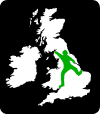
- The most recent issue to be published was 133
- For further information, please see Publishing/Despatch Schedule
- Database last updated on Tue, 03 Mar 2026 10:01:54 +0000
- Online access is currently available for all issues. Some of
the older issues are bit-map scans rather than digital copies.
journal scans.
- Online voting for CREG articles was withdrawn in June 2022. For info see
Voting for CREG articles
Contents of journal 71
June 2008
This page may take a few
seconds to load. Please wait ...
- CREG Journal 71 (0-24)
(PDF 4.7MB)
  Individual articles may be available below Individual articles may be available below
- This issue has a cover date of June 2008, but was actually published in December 2008.
-
- Newssheet (3)
- 2009 Cave Technology Symposium, Publication Delays, Refocusing, Future Directions, Diary Dates.
-
- IP Ratings Revisited (4-6)
- Mike Bedford delves into the IEC 60529 standard that defines ingress protection (IP) ratings to correct a common misconception. Two methods of protection against the harmful effects of water vapour ingress - pressure equalisation and desiccation - are also described.
-
- Wet & Dry (7)
- Ruggedisation, waterproofing & constructional techniques. Column edited by Mike Bedford.
-
- A Caving Light for the 21st Century (8-12)
- Stuart France updates his white LED caving lamp design to incorporate new LED, battery and control technology, and also looks at a powerful back-up light.
-
- Web Watch (12)
- Peter Ludwig offers yet more links to intriguing items on the Internet.
-
- We Hear (13)
- News and events: Mike Bedford brings us the latest to impact the world of cave radio and electronics.
-
- Novel Cave Radio Antenna uses Small Ceramic Tiles (14-15)
(PDF 1.2MB)

- Induction loop antennas are often inefficient due to skin and proximity effects, self-capacitance and tuning losses. However, an electric field antenna will generate a magnetic field which, in some circumstances, can exceed the field strength available from a loop antenna of similar mass and power dissipation. The main difficulty is in achieving efficiency at a small size. David Gibson explains how this may be achieved using high-permittivity ceramic tiles.
-
- Wireless in a Coalmine (16-17)
- Mike Bedford reproduces an article which was first published in 1922 by an unnamed author with amateur radio callsign 2ZD, which provides an interesting insight into the early days of experimentation in sub-surface communication.
-
- Speleonics (18)
- One of the founders of Speleonics magazine, Frank Reid, died 10 years ago. Several subscribers to the mailing list have contributed fond memories, which are summarised by John Rabson.
-
- Letters to the Editor (19)
- Reducing Loran, HeyPhone Coils
-
- Cave Technology Symposium 2008 (20-23)
- BCRA's second Cave Technology Symposium took place in April 2008. Mike Bedford and Rob Gill review the proceedings with abstracts of each of the presentations.
-
- Unusual Photographic Duotone Processing (24)
- David Gibson describes the digital processing of the 2008 Hidden Earth poster, which used a MatLab program to achieve the desired reduction to two ink colours.
-
- The Adventures of GREG (24)
- Illustrations by Adrian Higgins with words by Mike Bedford.
-

|

View Contents:

BCRA is a UK registered charity and is a constituent body of
the British Caving Association,
undertaking charitable activities on behalf of the BCA.
BCRA publishes a range of periodicals and books.
Click here for further information.
|
Searching
To Search our pages using Google, type a search
string in the box at the top of the page and hit your Return key
You can also search our publications catalogue at the British Caving Library
The CREG Journal Search Engine is a new, powerful search engine which will, sometime, be extended
to cover Cave & Karst Science. We have a keyword search facility on our Cave Science Indexes pages but this may be rather out-of-date.
|
For staff use: Link to Database
Show/Hide
download figures next to each item (if available and non-zero; you might need to refresh page first). Counters last
reset on Thu 03-Jan-2019 17:29:28 +00:00. The figures are non-unique
click-throughs.
|









